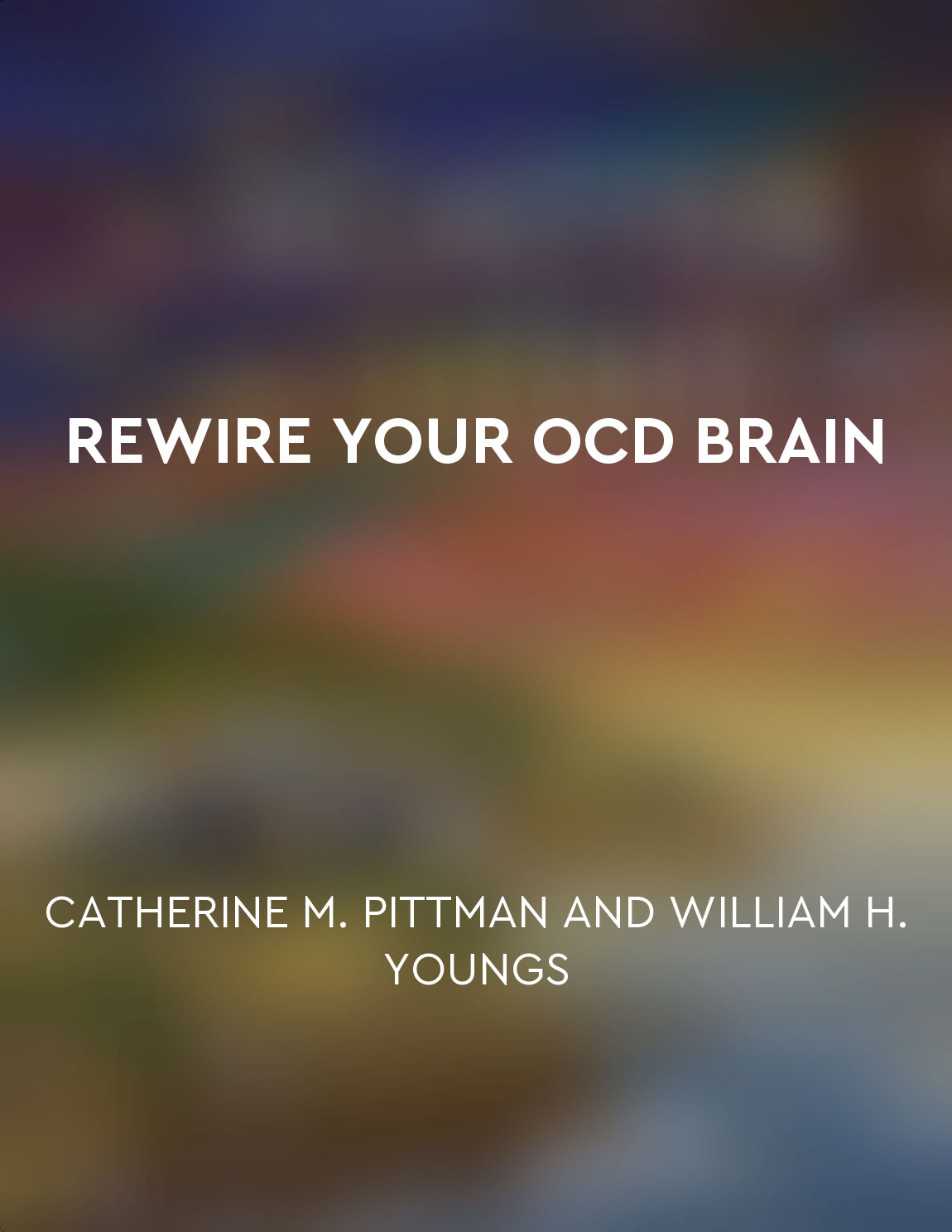Audio available in app
Gradual exposure helps individuals confront feared situations from "summary" of Cognitive Therapy of Anxiety Disorders by David A. Clark,Aaron T. Beck
Gradual exposure is a key component of cognitive therapy for anxiety disorders. This technique involves helping individuals confront feared situations in a step-by-step manner. The rationale behind gradual exposure is to help individuals gradually build up their tolerance to anxiety-provoking situations. By facing their fears in a systematic way, individuals can learn that their anxiety will decrease over time and that they are capable of coping with the situation. The process of gradual exposure typically begins with the individual and therapist creating a hierarchy of feared situations. This hierarchy ranges from situations that produce mild anxiety to those that produce severe anxiety. The individual then works with the therapist to slowly confront each situation on the hierarchy, starting with the least anxiety-provoking situations and working up to the most anxiety-provoking ones. This gradual approach allows the individual to experience success at each step, building confidence and reducing anxiety along the way. During exposure exercises, individuals are encouraged to pay attention to their thoughts, emotions, and physical sensations. This helps individuals identify and challenge any cognitive distortions that may be contributing to their anxiety. By confronting their fears in a controlled environment, individuals can gather evidence that contradicts their catastrophic beliefs about the feared situation. This process can help individuals develop more realistic and adaptive beliefs about the situation, leading to a reduction in anxiety.- Individuals can learn that their anxiety is manageable and that they have the skills to cope effectively. This newfound sense of mastery can help individuals break the cycle of avoidance and gradually regain control over their lives. Ultimately, gradual exposure can be a powerful tool for helping individuals confront their fears, reduce their anxiety, and improve their overall quality of life.
Similar Posts
Embrace the beauty of imperfection
Oliver Burkeman explores the idea that embracing imperfection can lead to a more fulfilling life. In a society obsessed with pe...
Embracing discomfort
The concept of embracing discomfort is about facing your fears, stepping out of your comfort zone, and challenging yourself to ...
Developing mindfulness skills
To cultivate mindfulness skills, it's crucial to understand that it involves developing a heightened awareness of the present m...
It is a key to unlocking our true potential
This concept, like a key that unlocks a door, has the power to reveal our true potential. It is the foundation upon which our g...
Developing a support network can provide encouragement and guidance in managing anxiety
When facing anxiety, it is essential to have a support network in place. This network can consist of friends, family members, t...

Foster a sense of purpose and meaning in life
One way to enhance your overall well-being is to identify and nurture a sense of purpose and meaning in your life. This can hel...

Acknowledge your struggles without judgment
When it comes to dealing with your struggles, it's important to acknowledge them without passing judgment. This means recognizi...
Selfacceptance
Self-acceptance is a concept that is difficult for many people to grasp. It requires a level of self-awareness and understandin...
The mindbody connection is a key focus in mindfulness practice
The mindbody connection is a key focus in mindfulness practice. When we talk about the mind and the body, we are really talking...
Sadness is a natural response to loss and should be honored
Sadness arises when you lose something or someone you care about. It is a natural response that should not be ignored or suppre...

